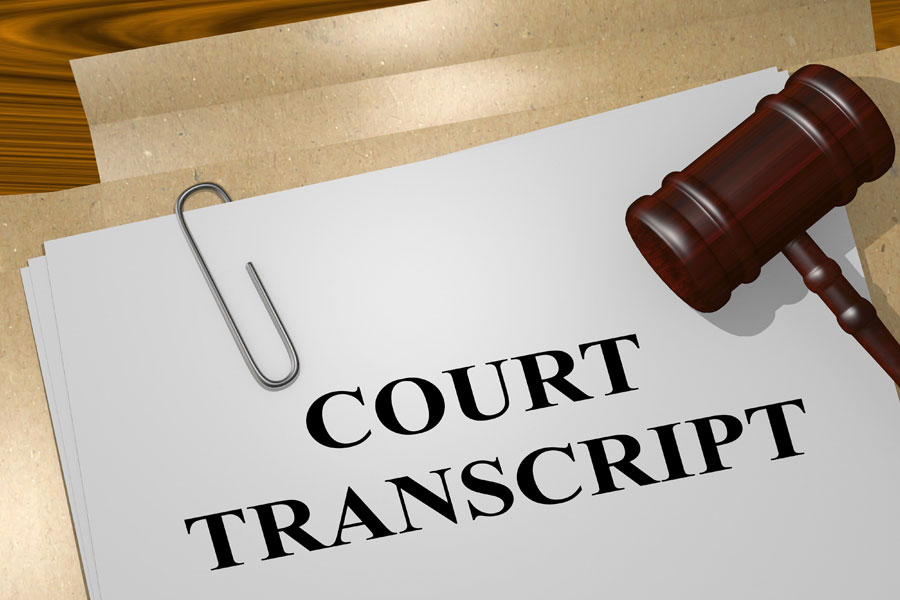The Value of Legal Video Clip Depositions in Modern Legal Solutions: What You Need to Know
Lawful video depositions have actually become essential in today's legal landscape. They supply a multidimensional view of witness testimonies that conventional transcripts just can not match. By catching both non-verbal and spoken communication, these depositions boost the overall understanding of a witness's credibility. The efficiency of video depositions hinges on various aspects, including conformity with legal requirements and best techniques. Discovering these aspects reveals their true significance in modern-day legal services
What Are Legal Video Clip Depositions?
Lawful video clip depositions function as an important device in the litigation process. They include taping witness testaments in a video clip layout, catching both spoken and non-verbal interaction. This method permits lawyers to record the temperament, expressions, and responses of witnesses, supplying a richer context for the testimony. Usually performed in a controlled environment, these depositions are led by attorneys that ask inquiries while a stenotype reporter documents the dialogue. The resulting video can be critical for trial preparation, as it enables attorneys to evaluate the credibility of witnesses and improve their techniques. Additionally, legal video depositions can be used in numerous lawful contexts, ranging from civil disputes to criminal situations. The auditory and visual elements of video clip depositions improve the presentation of proof, making it an important part in the modern lawful landscape. In general, they contribute substantially to the efficiency and performance of legal procedures.

Advantages of Video Clip Depositions Over Traditional Methods
Video depositions supply various advantages contrasted to standard methods of taking witness testaments. One substantial advantage is the capability to catch both aesthetic and audio aspects, giving an extra complete document of the witness's statements. This twin layout enhances clearness and allows attorneys to reference particular nuances during trial prep work. In addition, video depositions help with remote engagement, making it simpler for witnesses who may be not available for in-person appearances due to geographical restraints or wellness issues.Moreover, video clip depositions can speed up the overall deposition process, reducing the time and expenses related to traveling and logistics. They additionally improve ease of access, as tape-recorded depositions can be conveniently shared amongst legal groups and referenced any time. This benefit adds to better case administration and preparation. In general, video clip depositions stand for a modern, reliable approach to gathering witness testaments, aligning with the developing needs of the legal career.
The Duty of Body Movement and Tone in Testimonies

In lawful video depositions, body movement and tone play vital roles in sharing a witness's reputation and credibility. Nonverbal cues can supply understandings into a witness's emotion, affecting exactly how their testament is viewed. Recognizing the influence of these aspects is vital for attorneys and jurors alike when examining the reliability of a testimony.
Nonverbal Interaction Insights
While verbal interaction is typically highlighted in legal statements, nonverbal cues such as body movement and tone play a necessary role in communicating reliability and emotion. Viewers of depositions might keep in mind that a witness's stance, motions, and face expressions can considerably affect understandings of reliability. Consistent eye contact may signal self-confidence, while avoiding look can suggest deceit or discomfort. The tone of voice-- its pace, volume, and pitch-- can impart sensations of genuineness or uncertainty. Attorneys must be in harmony with these nonverbal signals, as they typically supply important context that complements spoken words. Recognizing these subtleties can enhance the performance of depositions and influence the outcome of lawful process.
Psychological Tone Effect
The emotional tone shared throughout legal testaments considerably impacts exactly how a witness is perceived. Body movement, vocal inflections, and face expressions play vital functions in shaping the narrative of a testament. A witness displaying self-confidence via constant eye get in touch with and a calm tone can impart a feeling of dependability and interaction. Conversely, indicators of anxiety, such as fidgeting or an unstable voice, may cause skepticism regarding their account. The subtleties of emotional expression can influence the analysis of realities, making it vital for attorneys to identify these cues. In video clip depositions, the aesthetic and acoustic components incorporate, emphasizing the importance of emotional tone in conveying genuineness and reliability within the lawful process.
Reliability and Credibility
A crucial element in developing trustworthiness and reliability throughout testimonies hinges on the witness's body language and intonation. Observers often depend on non-verbal cues-- such as eye call, posture, and motions-- to analyze a witness's sincerity. For instance, a witness that maintains eye contact and displays open body language may be perceived as even more trustworthy and straightforward than one that stays clear of eye contact or appears closed off. Furthermore, intonation plays an important role; a constant, calm tone can reinforce the credibility of the testament, while variations in pitch or volume might increase additional resources uncertainties. Eventually, the mix of body movement and vocal tone substantially influences how a witness's declarations are received and translated in a legal context.
Ideal Practices for Conducting Video Clip Depositions
Carrying out video clip depositions requires mindful planning and execution to assure a effective and clear discussion of testament. First, it is essential to pick a peaceful, well-lit area to lessen distractions and safe and secure ideal video clip high quality. The tools must be checked beforehand, consisting of video cameras, microphones, and lighting, to stay clear of technological problems throughout the deposition.Next, celebrations entailed should examine the format and procedures ahead of time, making certain that everyone comprehends their duties. The deponent ought to be briefed on the procedure, including how to respond clearly and concisely.Additionally, keeping an expert behavior throughout the session is crucial. This consists of refraining from speaking over one an additional and confirming that all inquiries are guided appropriately. It is important to videotape the deposition in a format that allows for simple playback and review, maintaining the stability of the statement for future usage.
Legal Considerations and Compliance Issues
How do lawful factors to consider and compliance problems influence the efficiency of video depositions? Attorneys should browse an intricate landscape of regulations, ensuring that video depositions follow jurisdictional rules and requirements. Conformity with laws worrying privacy, permission, and tape-recording techniques is vital. Getting explicit approval from all parties involved is essential to prevent legal repercussions.Additionally, the admissibility of video clip proof in court can hinge on conformity with procedural demands. Guaranteeing that the devices used fulfills technical requirements is additionally crucial, as low quality can undermine the deposition's reliability.Moreover, lawyers need to recognize any kind of details state legislations that govern video depositions, as these can vary greatly. Failure to deal with these considerations can not only jeopardize the honesty of the deposition however additionally affect the total situation method, eventually impacting the client's lawful results.
Just How Video Depositions Impact Court Understanding
While video depositions can function as powerful tools in legal procedures, their impact on court you can try here assumption is considerable. The auditory and aesthetic elements of video recordings offer jurors with an extra comprehensive understanding of witness behavior, trustworthiness, and emotional feedbacks. This multimedia method can improve the jurors' ability to evaluate the dependability of testament contrasted to conventional text-based transcripts.Moreover, video depositions allow jurors to observe body movement, tone of voice, and faces, every one of which can affect their analysis of the witness's declarations. The presence of a witness on display can humanize them, cultivating empathy and link, pop over to this web-site which may persuade jurors' point of views. Conversely, a witness that shows up incredibly elusive or undependable on video might bring about adverse perceptions that influence a court's decision. Eventually, the vibrant nature of video clip depositions plays an important duty in forming just how jurors interpret evidence and reach their decisions.
The Future of Video Depositions in Legal Method
As advancements in technology remain to improve the legal landscape, the future of video clip depositions is poised for significant advancement. Technologies such as expert system, digital fact, and boosted video clip conferencing tools are expected to simplify the deposition process and improve accessibility. Lawful specialists might use AI-driven analytics to evaluate witness integrity and instance toughness extra effectively.Moreover, the combination of online truth might enable courts to experience immersive simulations of depositions, offering deeper context and understanding. In addition, the pattern toward remote depositions is likely to persist, providing greater versatility for attorneys and customers alike.As remote job ends up being increasingly stabilized, video clip depositions will likely come to be common practice, reducing prices and time restrictions connected with typical methods. In general, these technological advancements promise to enhance the effectiveness, efficiency, and accessibility of video clip depositions in lawful method, ultimately changing exactly how lawyers plan for trial.
Frequently Asked Inquiries
Just How Much Do Lawful Video Depositions Commonly Expense?

Can Video Depositions Be Utilized in Any Sort Of Case?
Video depositions can be used in different sorts of cases, including civil, criminal, and family members regulation. Their adaptability permits attorneys to existing witness statements effectively, adjusting to the particular demands of different lawful circumstances.
What Tools Is Needed for a Video Clip Deposition?
To carry out a video clip deposition, important equipment includes a high-quality cam, microphone, lighting, and a trusted recording device. In addition, a computer with modifying software application might be essential for post-production and formatting the last video.
How Lengthy Does a Typical Video Deposition Last?
A regular video deposition lasts in between 2 to 4 hours, relying on the intricacy of the case and the number of questions positioned. Extended sessions may occur, but breaks are usually included for individual convenience.

Are Video Depositions Admissible in Court?
Video depositions are typically acceptable in court, provided they stick to lawful criteria and rules of evidence. Their use boosts quality and maintains witness testament, aiding in the judicial process throughout hearings and tests. Legal video depositions have ended up being crucial in today's legal landscape. Furthermore, legal video clip depositions can be made use of in different legal contexts, ranging from civil disputes to criminal instances. Furthermore, video depositions assist in remote engagement, making it less complicated for witnesses that might be not available for in-person appearances due to geographical restraints or health issues.Moreover, video depositions can expedite the overall deposition procedure, decreasing the time and costs linked with travel and logistics. Making sure that the tools used fulfills technical requirements is also important, as bad top quality can undermine the deposition's reliability.Moreover, lawyers have to be aware of any specific state laws that govern video depositions, as these can differ significantly. In addition, the trend toward remote depositions is most likely to persist, offering greater adaptability for lawyers and clients alike.As remote job becomes progressively stabilized, video depositions will likely end up being basic method, reducing expenses and time restraints associated with standard methods.
Comments on “Legal video depositions best practices: From lighting setup to audio clarity”